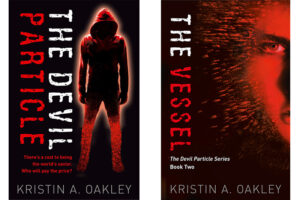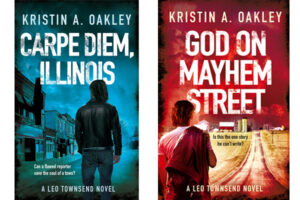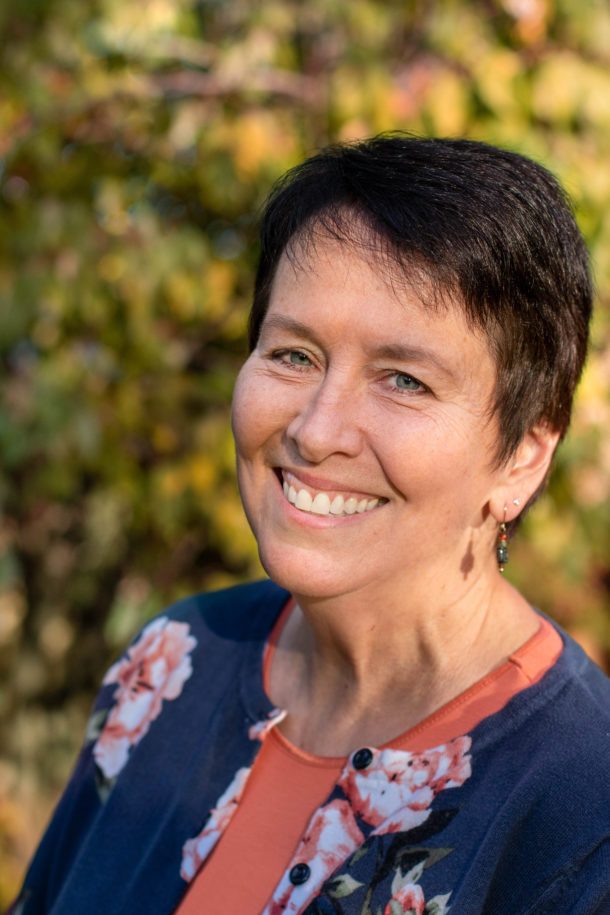When my debut mystery/suspense/thriller, Carpe Diem, Illinois, was released in 2014, I posted the news on Facebook and Twitter, ran a few ads, submitted the book to contests, and sent shout-outs to my email list. But I focused most of my marketing on in-person events—a book release party at a local bookstore, library presentations, book/author fairs, radio and TV interviews, homeschool and writing conventions, and book clubs.
I did a similar campaign when its sequel, God on Mayhem Street, was released in 2016 and had a party at a theater to celebrate the release of the two audiobooks in 2018. I sold books but I barely broke even.
With the release of my young adult dystopian novel The Devil Particle this June, I’m taking a different tactic—90% of my marketing will be online.
Keep in mind that much, if not all, of what I discuss below applies to both independently-published and traditionally-published books.
My First Marketing Step – Growing My Newsletter Audience
Years ago, while The Devil Particle manuscript was still in the early stages, Dan Blank of We Grow Media urged me to write a regular newsletter to the 400+ people on my email mailing list. I took his advice and have been writing a bi-monthly newsletter on my writing adventures and book reviews for many years and have almost doubled my audience. (For more on the importance of a newsletter and how to increase your audience, see my articles “Why You Need A Newsletter” and “How to Build Your Email List.”)
The people receiving my newsletters are my most loyal fans. They take an active interest in my writing career and are excited about the release of my new series. They’ve helped me select the cover of The Devil Particle, encouraged me when I struggled through multiple re-writes, and celebrated my final draft. Many agreed to be ARC readers (more about ARCs later), and I know they tell their friends and family about my books.
Step Two – Polishing the Manuscript
The best marketing tool you have is a well-crafted book. There are plenty of resources to help you learn about the craft (books, websites, conferences like the Chicago Writers Association’s Let’s Just Write! An Uncommon Writers Conference, etc.) and many opportunities to enlist the help of others (critique groups and partners, beta readers, writing instructors, and editors).
I worked for years on The Devil Particle, workshopping it at UW-Madison’s Division of Continuing Studies Write by the Lake Retreats, hiring developmental editor Tim Storm and working on many edits with him, bouncing it off other skilled writers, and enlisting the help of beta readers. Could I edit it forever? Certainly, but I won’t. It’s as good as I can get it at this point. I’m ready to send it out into the world (though I’ll admit, this step is the scariest).
In addition to intensive developmental edits, I had the manuscript copyedited and used Grammarly Premium to check my punctuation, grammar, and word choices. I’ve ensured that the manuscript is polished.
Step Three – Selecting the Right Cover
Don’t let anyone fool you; readers always judge books by their covers. It’s not enough to have an attractive cover; the design should fit the book’s genre. Readers should know exactly what they’re getting simply by looking at the cover. When they see a well-built man with his shirt unbuttoned, a dilapidated cabin in the woods, or a fire-breathing dragon, they know they’re looking at a romance novel, a horror story, or a fantasy tale.
Additionally, the cover should grab the reader and entice them to select that book from all the others in the bookstore or those listed in their Amazon search. The excellent writing on the first few pages will seal the deal.
While I have some artistic ability, I know I lack the marketing knowledge to design a young adult dystopian novel. So, I hired Patrick Knowles of Reedsy. Patrick’s had over twenty years of experience creating covers for bestselling books.
If you go the traditionally-published route, your publisher will select the cover for you. Generally, you won’t have much say in the matter. But rest assured; they’re in the business of selling books and, most likely, know more about what sells than you do.
Step Four – Select Your Release Date
If you have some sway over your traditional publisher, then you’ll want to ask for as much time as possible. If you’re self-publishing, select a release date nine months to a year after the book is done. This will allow you time to give your book the marketing attention it deserves.
Step Five – Advance Reader Copies (ARCs)
Authors and publishers send Advanced Reader Copies of books (ARCs) to readers four to six months in advance in exchange for honest reviews on Amazon once the book is released. The ARCs are books that still need to be finalized. Because of this, ARCs are not available for resale — they’re for the reviewer’s eyes only.
Early reviews are vitally important to the launch of a new book. They create excitement for the upcoming release, provide you with blurbs to add to your final book, and give you additional eyes to catch grammar and punctuation mistakes.
In addition to sending ARCs to those in my newsletter audience who requested them, I’m sending them to podcast and radio show hosts before my interviews. I’ve also offered them to the podcast show’s fans.
Step Six – Podcasts
Each in-person event I did with my first books took several hours to two days to prepare. If I were giving a talk, I’d write and rehearse my speech. Then I’d pack all my books, haul them to my car, drive to the venue, lug my books there, set up with the help of the staff, give my talk, answer questions, and hopefully sell a few books.
At some events, I sold ten books or more. During one dismal event at a local bookstore, six people attended (two had already bought my book and were just happy to see me), and another person wandered over. I didn’t sell one book. A day and a half of preparation and I had nothing to show for it.
This time around, I’m booking as many podcasts as I can. Other than researching the podcasts to ensure they’re a good fit and reaching out to them, there’s no prep work. I simply show up at the allotted time and answer questions. In one 45-minute podcast interview, I’ll reach hundreds, if not thousands, of people. Helpful tip—I’m using the search engine Listen Notes to find applicable podcasts.
I will admit that I have scheduled a book release party at Mystery to Me Bookstore in Madison on June 7th, the day after The Devil Particle is released. I anticipate good sales, but I also expect that most attendees will be my family and friends who will buy the book whether I have the party or not. That’s okay; sometimes, marketing is simply celebrating.
Please note: This article was originally published on the March 21, 2023 Chicago Writers Association’s blog.



